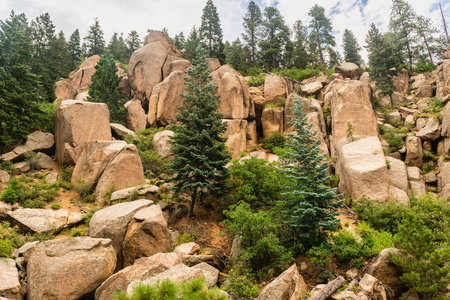Introduction: The Allure and Ambiguity of Wild Camping
For generations, wild camping has captured the imagination of Britain’s outdoor enthusiasts. There’s something undeniably thrilling about pitching a tent beneath the open sky, far removed from crowded campsites and civilisation’s glow. National parks like Dartmoor, the Lake District, and Snowdonia offer rugged beauty and a sense of freedom that calls out to adventurers seeking solitude or a deeper connection with nature. Yet, despite its romantic appeal, wild camping in Britain is shrouded in legal uncertainty. Many are drawn to the experience by stories of quiet nights on remote hillsides or spontaneous bivouacs beside hidden lakes, but few truly understand what the law actually permits—or prohibits. Misconceptions abound, fuelled by folklore, word-of-mouth advice, and sometimes even outdated guidebooks. As a result, many campers find themselves navigating a murky legal landscape where rights and responsibilities are anything but clear-cut. This article delves into the realities behind wild camping in Britain’s national parks, dissecting the myths and illuminating the actual legal framework that governs this time-honoured pursuit.
2. The Legal Landscape: National Parks and Trespass Laws
The legal framework governing wild camping in the UK’s national parks is a tangle of tradition, statutory law, and local byelaws. Contrary to romanticised notions of open access, the law draws a firm line between public rights and private property, particularly when it comes to pitching a tent for the night.
Public vs Private Land: What the Law Says
In England, Wales, and Northern Ireland, almost all land—whether inside or outside a national park—is privately owned unless specifically designated as public access land. Scotland stands apart with its more permissive approach under the Land Reform (Scotland) Act 2003, but even there, certain responsibilities apply.
Distinction Between Trespass and Criminal Offences
Trespass is at the heart of wild camping laws in most of the UK. If you camp on land without permission, you are technically trespassing. However, trespass is generally a civil matter, not a criminal offence—unless you refuse to leave when asked or cause damage. In some circumstances, such as aggravated trespass or ignoring specific byelaws (e.g., on Dartmoor), your actions may cross into criminal territory.
Legal Distinctions at a Glance
| Jurisdiction | Camping on Public Land | Camping on Private Land | Trespass – Civil or Criminal? |
|---|---|---|---|
| England & Wales | Generally prohibited without explicit permission; exceptions exist (e.g., parts of Dartmoor until recent court cases) | Prohibited without landowner’s consent | Civil matter unless escalated (e.g., aggravated trespass) |
| Scotland | Permitted under “right to roam” laws with certain restrictions (e.g., respect for privacy, no damage) | Permitted with same caveats as above | No offence if done responsibly; criminal if byelaws breached or aggravated behaviour occurs |
| Northern Ireland | Prohibited except in designated areas or with permission | Prohibited without landowner’s consent | Civil matter unless escalated |
The Role of Byelaws and Local Regulation
National parks often have their own byelaws that further restrict or clarify camping rights. These can impose fines or lead to prosecution if ignored. For example, parts of the Lake District and Peak District have strict controls due to environmental concerns and overuse. Always check local rules before planning an overnight stay.
In summary, wild camping legality hinges on where you pitch your shelter and how you conduct yourself. Understanding these distinctions is crucial for avoiding trouble—and showing respect for both the land and its owners.

3. Regional Nuances: England, Scotland, and Wales Compared
When it comes to wild camping in national parks across the UK, the legal landscape is anything but uniform. Each nation—England, Scotland, and Wales—operates under its own distinct legal framework, with consequences that every would-be wild camper should understand before unzipping their tent.
England: Permission is Paramount
In England, wild camping is largely governed by the principle of land ownership. With few exceptions—such as parts of Dartmoor National Park where a recent legal battle has tightened restrictions—wild camping without explicit landowner consent is considered trespass. The law here leans heavily towards protecting private property rights, and enforcement can be swift if you’re caught pitching up where you shouldn’t. While some landowners might turn a blind eye or grant permission if asked respectfully, assuming you can camp anywhere will likely end badly.
Scotland: The Right to Roam
Crossing north of the border, Scotland stands in stark contrast thanks to the Land Reform (Scotland) Act 2003. Here, the “right to roam” means that wild camping is generally permitted on most unenclosed land, including within national parks like Cairngorms and Loch Lomond & The Trossachs. This access comes with clear responsibilities: campers must follow the Scottish Outdoor Access Code—leave no trace, respect wildlife, avoid causing damage—and certain sensitive areas may still impose local restrictions. But make no mistake, Scotland’s open approach is unique in Britain and celebrated among seasoned outdoor enthusiasts.
Wales: Following in England’s Footsteps
Wales mirrors England’s stance on wild camping. Unless you are on designated campsites or have secured the landowner’s blessing, your tent could see you classified as a trespasser. Even within Snowdonia or Brecon Beacons (now Bannau Brycheiniog), authorities often enforce strict rules against unauthorised camping. Some remote spots may tolerate discreet overnighters—but this is never guaranteed and crackdowns are not uncommon during busy seasons or following reports of anti-social behaviour.
The Bottom Line: Know Before You Go
The differences in legal frameworks across England, Scotland, and Wales can mean the difference between an unforgettable night under the stars and a run-in with rangers—or worse. Take time to research your chosen park’s regulations and always err on the side of caution; what’s legal in one nation could get you moved on—or fined—in another.
4. Landowners’ Rights and the Responsibilities of Campers
When it comes to wild camping within the UKs national parks, understanding the rights of landowners is just as crucial as knowing your own. National parks are not entirely public land; much of their territory remains under private or common ownership. As such, campers must respect both the legal frameworks and the social contracts that govern these areas.
Landowners’ Legal Rights in National Parks
Even inside a national park, the underlying land may be owned by private individuals, trusts, estates, or local authorities. Landowners possess specific rights that are protected by law—these include the right to control access, exclude trespassers, and protect their property from damage or nuisance. In England and Wales, the Countryside and Rights of Way Act 2000 (CRoW) provides open access for walking on mapped areas of mountain, moor, heath, down, and registered common land but does not automatically extend to camping. Scotland’s laws differ, offering broader access under the Scottish Outdoor Access Code, but with an emphasis on responsibility.
| Nation | Landowner Rights | Camper Obligations |
|---|---|---|
| England & Wales | Right to refuse camping Control over land use Legal recourse against trespass |
Seek permission unless otherwise permitted Do not damage property Follow Leave No Trace principles |
| Scotland | Must tolerate responsible access Can challenge misuse or damage |
Camp responsibly as per Access Code Stay away from buildings/gardens Move on if asked by owner |
The Responsibilities of Campers: Legal and Ethical Essentials
If you’re planning to wild camp in a national park, you must be fully aware of your responsibilities. Legally, camping without permission is often considered trespass in England and Wales—an act that can lead to being asked to leave or facing civil action. Ethically, even where wild camping is tolerated or legal (such as parts of Dartmoor or under Scotland’s code), you must ensure minimal impact:
- Obtain explicit permission wherever required; do not assume right of access extends to overnight stays.
- Avoid disturbance: Keep noise down, respect wildlife corridors, and stay clear of private dwellings.
- No trace left behind: Pack out all rubbish, avoid fire scars, and restore any disturbed ground.
- Short stays only: Move on after one night unless you have ongoing consent.
- If challenged by a landowner: Remain polite and comply immediately—failure to do so can escalate matters legally.
Pitfalls That Lead to Conflict—and How to Avoid Them
The most common sources of friction arise from unauthorised group camps, visible fires or littering, proximity to homes or livestock fields, and overstaying welcome. By following best practice guidelines and always putting respect for landowners first, campers can enjoy Britain’s wild spaces while reducing the risk of conflict or prosecution.
5. Permission and Exceptions: Negotiating Legal Wild Camping
If you’re determined to experience wild camping in a way that stays on the right side of the law, understanding how to request permission and knowing where exceptions exist is critical. For most national parks in England and Wales, the default position is simple: you must gain explicit consent from the landowner before pitching your tent. This process may seem daunting, but it can be surprisingly straightforward if approached respectfully.
How to Request Permission
Start by identifying who owns or manages the land you wish to camp on—this might be a private individual, a farm, or an estate. Contact details can often be sourced online or via local parish councils. When reaching out, be polite and specific about your intentions. State your planned dates, group size, and reassure them of your commitment to the Leave No Trace principles. Many landowners appreciate courtesy and are more likely to grant access if they feel their land will be respected.
Established Exceptions: Dartmoor’s Unique Case
Dartmoor National Park stands apart due to its unique historical rights. Until recently, open-air camping without landowner permission was tolerated under a long-standing tradition. A 2023 High Court ruling challenged this custom, leading to uncertainty; however, subsequent agreements between park authorities and major landowners have reinstated limited areas where wild camping is permitted—provided campers follow designated guidelines. Always check the latest official Dartmoor maps and regulations before setting out.
A Guide to Negotiating Legal Wild Camping
Elsewhere in Britain, wild camping opportunities are rare but not impossible. Certain estates or farms within national parks operate permit schemes or tolerate discreet overnight stays for responsible campers. The key is negotiation: approach with humility, explain your respect for nature and the rules, and never assume entitlement. If refused, move on—trespassing could see you removed by police or face civil action under UK trespass law.
In summary, while legal wild camping in English and Welsh national parks requires effort and diplomacy, it is achievable with research and respect for the law—and nowhere is this more evident than in Dartmoor’s evolving landscape of rights and permissions.
6. Potential Consequences and How to Stay on the Right Side of the Law
Wild camping in the UK’s national parks is an adventure steeped in tradition, but it’s not without its risks—especially where legality is concerned. If you’re caught pitching your tent unlawfully, expect a measured but firm response from authorities or landowners. While prison time is exceedingly rare, most encounters result in a polite request to move on, particularly if you haven’t left a trace. However, repeated offences or visible disregard for the countryside code can escalate matters: fixed penalty notices, formal cautions, or even prosecution for aggravated trespass are all within the realm of possibility.
Enforcement approaches tend to be pragmatic. Park rangers and police often prioritise education over punishment, especially for first-timers. You’ll usually receive a warning and be asked to pack up—provided you cooperate and show respect for both the law and the land. Refusing to comply, causing damage, or leaving behind litter can trigger more serious consequences, including a court appearance or a fine that will haunt your record longer than any campfire memory.
So how do you keep both your campsite—and your record—clean? Hard-won survival wisdom applies: arrive late and leave early, avoid lighting fires, keep groups small and noise levels down, and always use a discreet, low-impact shelter. Steer clear of farmland during lambing season, and never camp within sight of homes or roads. Above all else, practise strict leave-no-trace principles; nothing attracts enforcement attention like rubbish or scorched earth.
If challenged by an official, honesty is your best policy. Remain calm and courteous—explain that you’re passing through and intend to leave no mark. Apologise if you’ve inadvertently breached local bylaws, and demonstrate your willingness to move immediately. Most importantly: know your rights as well as your responsibilities. Research each park’s regulations before setting off; some areas have tolerated wild camping zones or permit schemes that could save you hassle.
Ultimately, the legal landscape may shift with public pressure and environmental needs, but until then, blending classic bushcraft discipline with an up-to-date understanding of the law remains your surest defence against trouble in Britain’s great outdoors.
7. Conclusion: Striking a Balance Between Adventure and Law
Wild camping in Britain’s national parks is an enticing prospect for those who crave genuine adventure and an escape from the ordinary. Yet, as we’ve explored, the legal framework surrounding wild camping in England, Wales, and Scotland varies significantly—and ignorance of these laws can have real consequences. For every wild camper with a yearning for remote landscapes, there’s a duty to respect both the rule of law and the fragile natural environments that make these places special.
Ultimately, responsible wild camping isn’t about bending or breaking the rules; it’s about understanding them and adapting your plans accordingly. This means researching access rights, seeking landowner permission where required, and always adhering to the principles of Leave No Trace. Remember: the British countryside is not just a backdrop for personal adventure, but a shared heritage to be respected and protected.
British adventurers are urged to find legal ways to enjoy the wild—whether by using designated campsites, taking advantage of areas where wild camping is permitted (such as parts of Dartmoor or most of Scotland), or obtaining clear consent from landowners. By striking this balance between adventure and legality, you not only safeguard yourself from legal trouble but also help preserve access to these cherished landscapes for future generations.
In short: know before you go, respect both law and land, and let your adventures in Britain’s great outdoors be defined by responsibility as much as by excitement.


